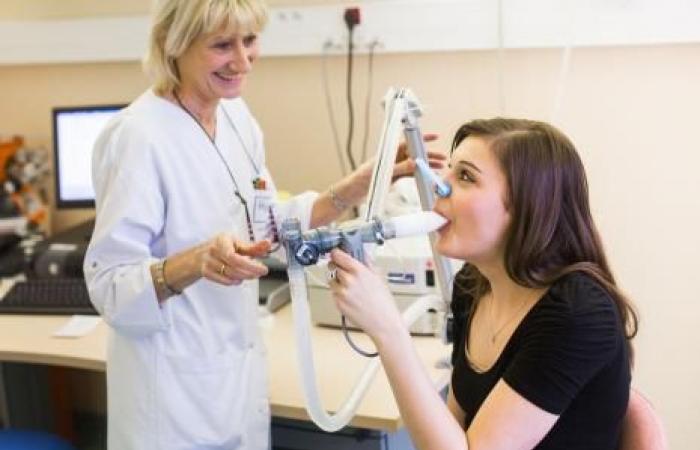A new triple therapy, vanzacaftor – tezacaftor – deutivacaftor, proves effective for the treatment of cystic fibrosis, according to three studies published in The Lancet Respiratory Medicine. The Ridgeline VX21-121-105 trial showed the effectiveness and safety of this triple therapy in children between 6 and 11 years old, the Skyline VX20-121-102 and 103 trials showed its non-inferiority compared to standard elexacaftor triple therapy – tezacaftor – ivacaftor (Trikafta and Kaftrio from the Vertex Pharmaceuticals laboratory). In addition, the Skyline trials show that this so-called “next-in-class” triple therapy is effective for several previously non-responsive CFTR mutation profiles.
The three trials were funded by Vertex Pharmaceuticals, which markets the vanzacaftor – tezacaftor – deutivacaftor triple therapy under the specialty name Alyftrek. This CFTR modulator has received US marketing authorization from the Food and Drug Administration on December 20, 2024 for the treatment of cystic fibrosis in patients over 6 years of age with at least one responsive mutation, including 31 additional previously unresponsive to other CFTR modulating therapies.
The new triple therapy could improve therapeutic adherence
In the two international multicenter phase 3 trials Skyline VX20-121-102 (398 patients) and 103 (573 patients), the next-in-class group presents an improvement in forced expiratory volume in one second (FEV) not less than that of the standard group, as well as a reduction in pulmonary exacerbations and sweat chloride concentrations. Concerning adverse events, they were mild to moderate in all arms.
Beyond its safety, this new triple therapy, administered in a single daily dose, has improved the therapeutic burden and, potentially, adherence, compared to the standard taken twice a day. For the authors, these results show the potential of this triple therapy to restore CFTR function while improving quality of life, for a larger population than standard triple therapy. Indeed, the two Skyline trials, which each included different genotypes, showed that the new triple therapy obtained a response for 31 CFTR variants which were not responders to standard triple therapy.
In children, prevent progression of the disease by treating early
The international multicenter Ridgeline VX21-121-05 trial included 78 children aged 6 to 11 years with cystic fibrosis to receive a daily single dose of the vanzacaftor – tezacaftor – deutivacaftor combination. With a median exposure to treatment of 168 days, the authors conclude that the treatment is safe and well tolerated, as well as effectiveness equivalent to that expected on pulmonary function (FEV) and sweat chloride concentration.
Mild to moderate adverse events were reported in 96% of patients, mainly associated with usual manifestations of cystic fibrosis (cough, fever, headache, pulmonary exacerbations of cystic fibrosis, oropharyngeal pain), and in 8% a more serious manifestation was observed. severe (infectious exacerbation, adenovirus infection, constipation, decreased lung function and cough).
In this trial, the authors also conclude that there is an improvement in CFTR function, which gives hope for restoring physiology and preventing the progression of cystic fibrosis in this age group by administering the treatment as early as possible.





